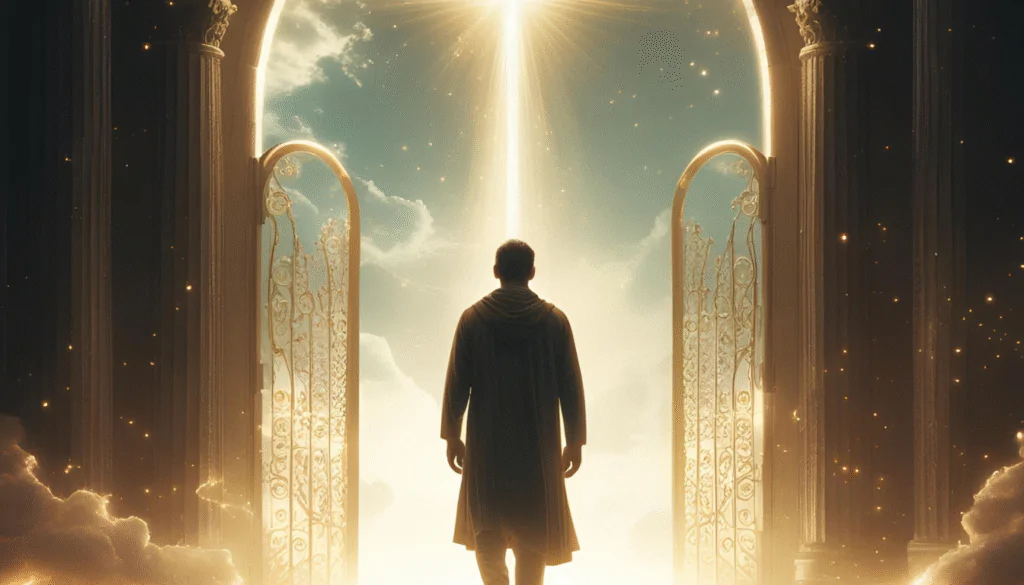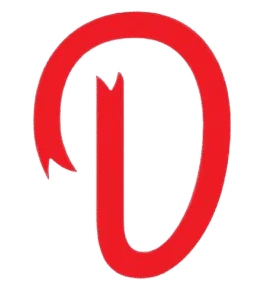A Journey into the Symbolism of Endings and New Beginnings
Waking up from a dream in which you experienced your own death is one of the most jarring and unforgettable encounters you can have in the realm of your subconscious. The feeling can be intensely real, leaving you with a racing heart, a sense of profound dread, and an urgent, lingering question: What does it mean? The immediate and terrifying thought for many is that the dream might be a premonition, a dark prophecy of an impending end.
It’s a natural fear, but it’s one you can almost certainly set aside. Dreaming about your own death is an incredibly common and archetypal dream, and it is almost never a literal prediction of your physical demise.
Instead, this powerful and often frightening dream is a deeply symbolic message from your inner self. In the rich, metaphorical language of dreams, death is not about an ending of life, but an ending in life. It represents profound change, dramatic transformation, and the end of one chapter to make way for the beginning of another. Your subconscious mind uses the ultimate symbol of finality to communicate the significance of a transition you are currently navigating.
This article will serve as your guide through this unsettling but ultimately insightful dream, exploring the psychological, emotional, and spiritual interpretations to help you understand that dreaming of your own end is very often a powerful and positive sign of your own personal evolution.

The Ultimate Metaphor: Death as a Symbol of Major Life Change
From a psychological perspective, dreaming about dying is the subconscious mind’s most powerful way of symbolizing a major life transition. Our minds use metaphors to process complex emotions and experiences, and there is no metaphor for an ending more definitive than death itself. When you dream of dying, your mind is not concerned with your physical mortality; it is processing the “death” of your old self, an old way of life, an old job, or a significant relationship. This is the end of an era, and your dream is acknowledging the magnitude of this change. You are shedding a significant part of your identity, and the dream reflects the finality of that process.
Think about the major milestones in life: graduating from school, leaving your family home, getting married, changing careers, or retiring. Each of these events involves the “death” of a former identity. The student “dies” to become the graduate entering the workforce.
The single person “dies” to become part of a married couple. This dream frequently occurs during these pivotal moments, acting as a kind of psychological rite of passage. It’s your mind’s way of marking the end of one chapter before you turn the page to the next. The dream is not a warning; it is a commentary on the profound transformation you are already experiencing.
Furthermore, the dream can be about the end of a particular mindset or belief system. Perhaps you are letting go of a long-held political view, a religious belief, or a negative self-perception that has defined you for years. This internal shift is a form of death—the death of an old way of thinking. The dream signifies that you are undergoing a significant psychological overhaul, breaking down old structures to build something new.
The anxiety or fear you feel in the dream often mirrors the uncertainty and discomfort that comes with abandoning familiar beliefs and stepping into a new, unknown paradigm. It’s the natural apprehension that accompanies true personal growth. By using such a dramatic symbol, your subconscious is highlighting just how fundamental this internal change is to your sense of self.
Letting Go and Rebirth: The Positive Side of a Frightening Dream
While the initial feeling of dreaming about dying is often fear, the underlying message is frequently one of positive transformation and renewal. This dream is the ultimate symbol of letting go. It suggests that you are in the process of shedding old baggage, negative habits, or toxic situations that have been holding you back. Just as a snake sheds its skin to grow, you are shedding a former version of yourself to make way for a newer, more authentic one. The “death” in the dream is not an annihilation but a necessary clearing of the slate.
Consider the things in your life that you need to release. Are you clinging to a dead-end job out of fear? Are you in a relationship that has run its course? Are you holding onto old resentments or self-destructive behaviors? A dream of your own death can be a powerful nudge from your subconscious, telling you that it’s time to let these things go.
The dream shows you, in the most dramatic way possible, that the end of this situation is not just possible but necessary for your rebirth. It is a symbol of liberation from the past. The fear you experience in the dream can be a reflection of your own resistance to this change, your attachment to the familiar, even if it is no longer healthy for you.
This theme of rebirth is central to interpreting these dreams. The death of the old self is inextricably linked to the birth of the new self. You cannot have one without the other. Therefore, dreaming of dying is often a very auspicious sign, heralding a period of significant personal growth, newfound freedom, and fresh opportunities. You are on the cusp of a major breakthrough.
The dream is the finale of the old story, setting the stage for an entirely new narrative to begin. After having such a dream, it’s a good practice to reflect on what new beginnings are emerging in your life. Are you starting a new creative project? Are you embarking on a new health journey? The dream is a confirmation that you are on a path of profound and positive change. It is a symbol of hope and renewal, disguised in a frightening package.
How You Die Matters: Interpreting Different Scenarios
The specific way you die in your dream provides crucial details that can help you understand the nature of the transition you are experiencing. The context and the cause of death in the dream are not random; they are symbolic clues that point to how you are perceiving this change in your waking life. Analyzing these scenarios can offer a more nuanced and personal interpretation of your dream’s message.
Dreaming of a peaceful or natural death, for instance, is often a very positive sign. It suggests that you are accepting the changes happening in your life. The transition feels like a natural and necessary part of your life’s journey. You are not fighting the end of this chapter; you are letting go with a sense of grace and understanding. This dream can indicate that you have come to terms with the end of a situation and are ready to move on without resistance. It reflects a sense of inner peace and alignment with your life’s path. The change feels organic and right for you at this time.
In stark contrast, dreaming of a violent death—such as being murdered, dying in an accident, or falling from a great height—points to a transition that feels abrupt, forced, and out of your control. You may feel like this change is happening to you, rather than being a choice you have made. Being murdered in a dream, for example, can symbolize feeling that someone else is “killing” a part of you, ending a project, or forcing you out of a situation against your will. It can also represent a form of self-sabotage, where one part of your personality is destructively ending the potential of another. Dying in a car crash might suggest that your life’s path feels like it’s heading for a collision or that a change is coming too quickly and recklessly.
The element involved in the death also adds a layer of meaning. Drowning is a classic dream symbol for being overwhelmed by emotions. Dreaming of drowning suggests that the life change you are undergoing is accompanied by a flood of sadness, grief, or anxiety that you feel is consuming you. Dying in a fire, on the other hand, can symbolize a transformation that is fueled by intense passion, anger, or a powerful purification process. The old you is being “burned away” to make room for something new. By paying close attention to these details, you can gain a much clearer picture of your own emotional landscape as you navigate the endings and beginnings in your life.
Spiritual and Existential Dimensions: Ego Death and Facing the Unknown
Beyond the psychological interpretations of life changes, dreams of dying often touch upon deeper spiritual and existential themes. For many spiritual traditions, the concept of “ego death” is a central and aspirational goal. The ego is the part of our identity that is constructed from our personal history, our beliefs, and our attachments. An ego death is the process of transcending this limited, personal self to connect with a more universal, authentic, and spiritual identity. A dream in which you die can be a powerful and direct experience of this profound spiritual event.
In this context, the dream is not about a life change like a new job, but about a fundamental shift in your consciousness. You are letting go of the question “Who am I?” in terms of your name, your profession, and your social roles, and beginning to connect with a deeper sense of being. This can be a frightening process, as the ego will often resist its own dissolution. The fear of dying in the dream mirrors the ego’s fear of losing control and its grip on your identity.
However, if you are able to surrender within the dream, you may experience a sense of peace, liberation, or oneness with everything. This dream is a sign that you are on a path of significant spiritual awakening. It’s an invitation to release your attachment to the superficial aspects of your identity and embrace a more expansive and authentic self.
These dreams also force us to confront our own mortality and our fear of the unknown. Even if the dream is symbolic, it taps into the very real and universal human fear of death. The dream may be bringing your own existential anxieties to the surface. Are you living your life to the fullest? Are you afraid of running out of time? This dream can serve as a powerful wake-up call, urging you to live more authentically and to make the most of the time you have.
It can prompt you to re-evaluate your priorities and to stop putting off the things that truly matter to you. In this way, a dream about death can ironically be a profound catalyst for a more vibrant and meaningful life. It encourages you to face your fears, embrace the unknown, and live with a greater sense of purpose and presence.
Health Anxiety, Stress, and the Grieving Process
While dreams of dying are most often symbolic, it’s important to acknowledge that they can sometimes be influenced by our waking-life anxieties about our physical health. If you have recently received a concerning medical diagnosis, have an upcoming surgery, or are simply experiencing a period of heightened health anxiety, it’s quite natural for these fears to manifest in your dreams. In this case, the dream is a direct reflection of your conscious worries. It is your mind’s way of processing the fear and stress associated with your health. The dream is not a prediction of a negative outcome, but rather a mirror of your current emotional state.
Severe stress and burnout can also trigger these powerful dreams. When you are completely exhausted and overwhelmed, you may feel like you are “at your end.” Your mind can take this figure of speech and turn it into a literal dream of dying.
The dream is a stark and dramatic symbol of your state of burnout. It’s a critical message from your subconscious that you need to make immediate and significant changes to your lifestyle to avoid a complete collapse. It is an urgent call for rest, self-care, and a re-evaluation of the pressures you are putting on yourself. Ignoring this dream can be detrimental, as it is a clear sign that your mind and body are reaching their limits.
Finally, if you have recently lost a loved one, dreaming of your own death can be a part of the grieving process. Grief can make us contemplate our own mortality more deeply. The dream may be a way for you to process the finality of death and to empathize with the experience of the person you have lost. It can also be a symbolic representation of the “death” of the part of you that was connected to that person. When someone significant dies, a part of our own identity and our life as we knew it also dies.
The dream is an acknowledgment of this profound personal loss and a step in the journey of processing your grief. It is a sad but necessary part of healing, allowing you to confront the reality of death in the safe and contained space of your own mind.
Conclusion
Dreaming about dying is a deeply personal and profoundly symbolic experience that, despite its terrifying appearance, is almost always a message about life, not death. It is a powerful communication from your subconscious, signaling that you are in the midst of a significant transformation. Whether you are letting go of an old identity, ending a chapter of your life, shedding negative beliefs, or undergoing a spiritual awakening, this dream is a marker of profound change.
It is a call to let go of the past and to embrace the future. It is a symbol of rebirth, renewal, and the incredible human capacity for growth. While the fear it evokes is real, the underlying message is often one of hope.
So, the next time you wake from this unsettling dream, take a deep breath. Instead of succumbing to fear, approach the dream with curiosity. Ask yourself what is ending in your life and what new beginning is on the horizon. By understanding the symbolic language of your dreams, you can transform a frightening nightmare into a powerful and insightful guide for your life’s journey, reminding you that every ending is simply the start of a new and exciting story.
FAQ
What does it mean to dream about dying?
Dreaming about your own death is typically not a literal prediction. It is a powerful symbol for a major ending or transformation in your life, such as the end of a job, a relationship, or an old way of thinking. It represents the “death” of your old self to make way for a new beginning.
Is it a bad omen to dream about your own death?
No, it is not considered a bad omen. In fact, it is often a very positive sign of personal growth, healing, and renewal. It signifies that you are shedding old, negative aspects of your life and are on the verge of a fresh start.
Why are dreams about dying so scary?
These dreams are scary because they tap into our most primal and universal fear of the unknown and of our own mortality. Even though the meaning is symbolic, the emotion in the dream feels very real.
What does it mean if my death was violent in the dream?
A violent death in a dream (e.g., being murdered or in an accident) often suggests that the change you are experiencing in your life feels abrupt, forced, or out of your control. It reflects feelings of being a victim of circumstance or even of self-sabotage.
What if my death in the dream was peaceful?
A peaceful death in a dream is a very positive sign. It indicates that you are accepting the changes in your life and see them as a natural and necessary part of your journey. It reflects a sense of peace and readiness to move on.
Can this dream be related to my health?
While usually symbolic, if you have significant, conscious anxiety about your health, the dream can be a direct reflection of those waking-life fears. It can also be a sign of severe stress or burnout, where your mind uses death as a metaphor for being completely exhausted.
What is “ego death” and how does it relate to this dream?
Ego death is a spiritual concept of transcending your personal, limited identity to connect with a more universal consciousness. Dreaming of your own death can be a symbolic experience of this profound spiritual transformation.
How can I cope with the fear after having this dream?
Remind yourself that the dream is symbolic, not literal. Ground yourself in the present moment. Journaling about the dream and connecting it to the changes happening in your life can help demystify it and reduce the anxiety.

I’m Marisa Silva—an intuitive dream researcher fascinated by the symbolic power each dream image can carry.
Since I was little, I’ve realized that dreams are much more than simple nocturnal memories: they are messages from the unconscious, signs from the universe, and reflections of our soul.
At deepdreamss.com, I share interpretations, reflections, and guidance so you can decipher your own dreams and reconnect with your inner wisdom.






